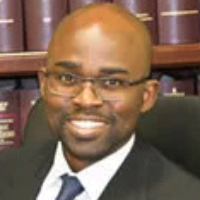Hancock Criminal Lawyer, Maryland
Sponsored Law Firm
-
 x
x

Click For More Info:
-
Roper & DiBlasio LLP
401 Headquarters Dr Ste 202 Millersville, MD 21108» view mapDivorce and Family Law Our Mission is Your Success
Roper & DiBlasio is a general practice law firm working within the local community to assist businesses, homeowners, and individuals with their legal needs.
800-785-7781
Ayodeji Oyekunle Badaki
✓ VERIFIEDDivorce & Family Law, Accident & Injury, Criminal, Bankruptcy & Debt
Ayodeji Badaki holds a J.D. from the University of Baltimore School of Law as well as an LL.M. from the Georgetown University Law Center where he was ... (more)
Graziella Bianchi
Real Estate, Child Custody, Criminal, Business Organization
Status: In Good Standing
Donald Louis Coomes
Landlord-Tenant, Divorce & Family Law, Criminal, Bankruptcy
Status: In Good Standing
George V McKinley
Traffic, Transportation & Shipping, Family Law, Criminal
Status: In Good Standing Licensed: 29 Years
 Kurt Roper Millersville, MD
Kurt Roper Millersville, MD Practice AreasExpertise
Practice AreasExpertise

